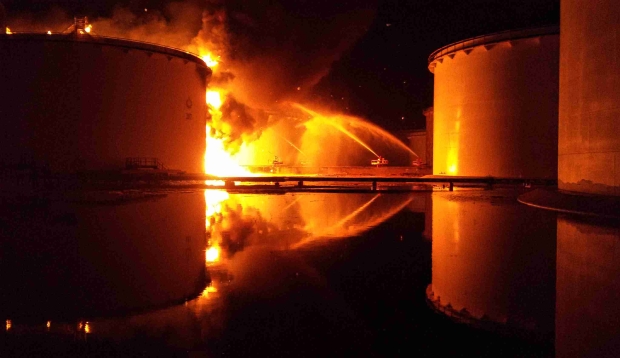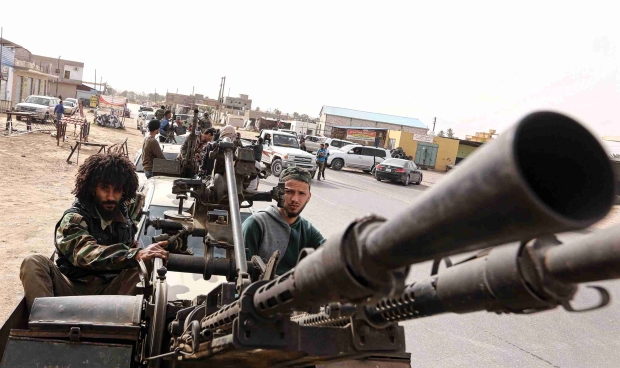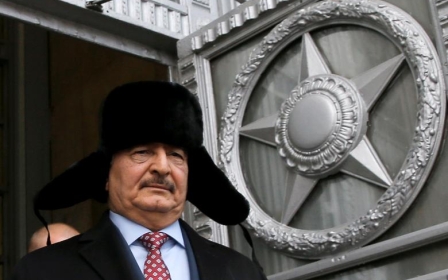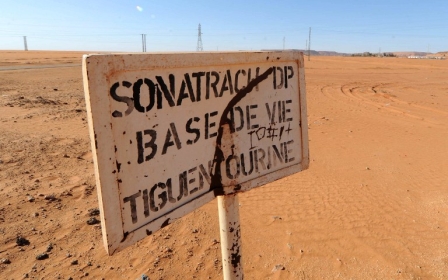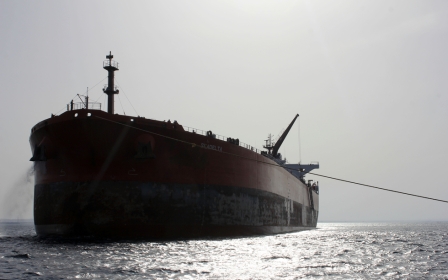How Libya's oil smugglers are bleeding country of cash
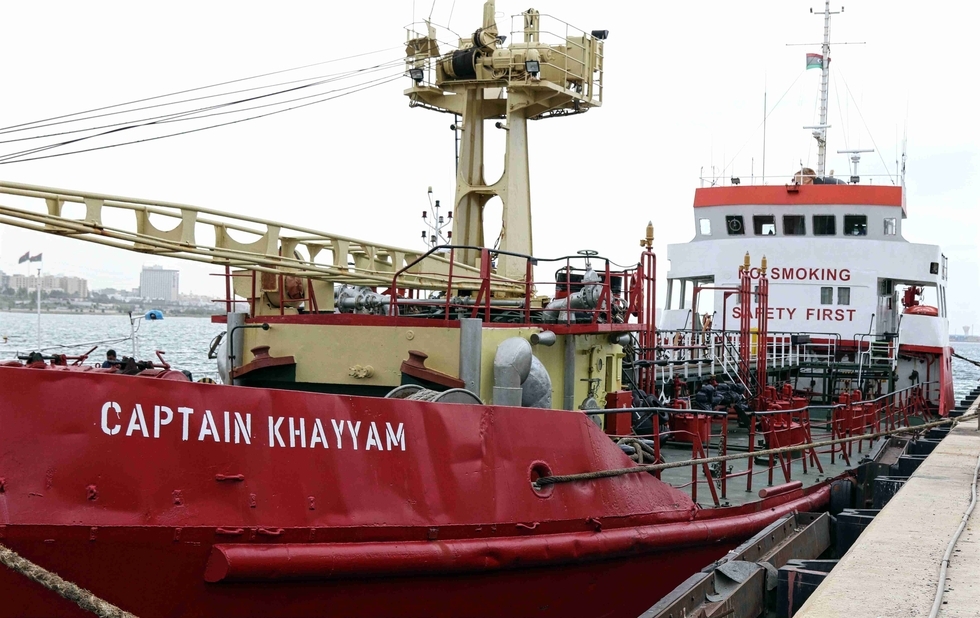
TRIPOLI, Libya - Sabratha lies on the far western coast of Libya. Founded by the Phoenicians and famed for its ancient Roman ruins, in more recent years it has been controlled at various points by Muammar Gaddafi, anti-government rebels and the Islamic State (IS) group.
But now the city is home to militants, a haven for fuel smugglers, who have turned this historic stretch of the North African coastline into a locus for their activities.
'Fuel smuggling is feeding the area, especially now that the cash is in short supply in Libya. The whole economy is a victim of lawlessness and corruption'
- Davide, Italian engineer
“If you wait until nightfall, you can see dozens of men filling the ships with fuel,” says Davide. It’s not his real name: A fifty-something engineer from northern Italy who has worked in western Libya for years, he asks for anonymity amid fears for his own safety.
"I saw dozens of ships, dozens of tankers, leave from the coast of Sabratha under the eyes of the local coast guard,” he says. "The armed militias, who control the area between Zawya and Sabratha, share out the zones of interest with the complicity of the police and the local coast guard.”
One man in Libya Donald Trump can't ignore
The fuel, he explains, is heading for ports across Europe “under the eyes of those who should control the coasts. Everyone knows it.”
He says that the Hneesh militia and the Dabbashi clan – two of the most powerful groups in western Libya - control fuel smuggling and human trafficking. When they fall out, it is usually resolved by armed conflict.
"The people who should be in charge of monitoring the region are threatened with death,” Davide says. “So if they see anything, they do not report it. Fuel smuggling is feeding the area, especially now that the cash is in short supply in Libya. The whole economy is a victim of lawlessness and corruption."
The power of the smugglers
Libya has more access to crude oil reserves than any other country in Africa. It has always been heavily reliant on fuel exports to power its economy.
In late January it was pumping 715,000 barrels of oil each day: That was its highest level since 2014, although less than half of the 1.6 million barrels it pumped before the 2011 revolution. But much of that oil, drawn from the ground amid the endemic chaos of Libya, is now syphoned off by smugglers.
This smuggling, according to the Libyan authorities, has cost state coffers more than half a billion dinars - about $360m. To put that into perspective, in 2016, Libya's budget revenues were estimated at $5.8bn, with expenditures of $13.7bn.
According to Libyan police, fuel smugglers use small boats and tankers containing up to 40,000 litres of refined product. The contents of the ships from Sabratha are then shunted to Malta, 160 miles from the Libyan coast, and also Sicily, where it is sold before reaching the Italian mainland.
One day after Sanalla’s accusations, the main source of electricity for Zawiya, a city of around 200,000 people, was shut down. western Libya lived under a blackout for days
On 27 January, Sadiq al-Sour, the general attorney with the Government of National Accord, announced a major investigation on corruption in the oil sector, looking at the smuggling of refined products from Libya to Italy, Malta, Cyprus and Greece. But the power wielded by the smugglers can be extensive.
On 4 January, Mustafa Sanalla, chairman of the National Oil Corporation (NOC), accused the Petroleum Facility Guards (PFG) - the official body in charge of protecting oil facilities - of corruption and complicity with national and international smugglers.
The Western agenda in Libya has failed
The response was not long in coming. One day after Sanalla’s accusations, the main source of electricity for Zawiya, a city of around 200,000 people, was shut down. Western Libya lived under a blackout for days.
"The area around Zawiya is managed by fuel cartels,” Davide tells Middle East Eye. “I have heard of armed militias organising armed checkpoints, planning the blocking of the roads to ensure the undisturbed passage of fuel tankers to the harbour.
“In Sabratha, everyone tells me that the Libyan militias have agreements with Sicilian Mafia families, who run the fuel smuggled off the Italian coasts."
Libyans: Europe doesn't want to help
But while the smugglers are getting rich, many in Libya are still suffering. The dinar now amounts to little more than wastepaper. And the poorer the country becomes, the more resentment grows among the wider population.
In Tripoli, banks are besieged daily by hundreds of customers. They want access to their money. But it’s gone: in Libya, hard cash is the prerogative of the fuel smugglers and human traffickers, not the average Libyan.
'Europeans are no longer welcome. Their presence here has become exploitative. It is thievery'
Nasser is 60 and has seven children: until a few years ago, he sold cars and was wealthy. Now, he only has a few thousand dinars left in the bank.
Every morning Nasser, who declines to give his full name for fear of his safety, goes to the bank. Every morning, the cashier at the desk tells Nasser the same thing: no cash.
Nasser is tired. "None of your [European] governments want to help us,” he says. “You stand at the window, watching people dying in the sea. European governments make propaganda with their military operations in the Mediterranean, calling them Sophia or Triton or Frontex.
Russia's secret plan to back Haftar in Libya
“Meanwhile, along our coast there are serious crimes every day and no one tries to find an answer.”
At an EU summit on 3 February, Europe’s leaders committed to spending €200m ($216m) to stem illegal migration and smuggling from the North African coast. It comes after Operation Sophia, intended to disrupt people smuggling, which was judged a failure by several governments.
Everyone, Nasser says, benefits – apart from the man in the street. “Nobody tries because everyone is benefiting from our energy resources. European countries have benefited for years from Libyan energy resources.
"Now Europeans are no longer welcome. Their presence here has become exploitative. It is thievery.”
The role of the clans
Today, the coastal road from Tripoli to Sabratha – two of Libya’s largest cities – is closed amid daily clashes between armed militias. The number of dead and kidnapped ticks ever upwards on a daily basis.
But it is here that ENI, the main Italian energy company, continues to work to full capacity, even during the darkest hours of the civil war.
But a letter dating from August 2015, passed to MEE from a source within the Libyan security service, says that the "battalion of the martyr Anas Dabbashi has begun working to secure the protection of the compound and be present nearby to the compound gate, as well as the road link from the complex to the western entrance gate of Sabratha."
The letter is signed, the source says, by representatives of Mellitah and the Dabbashi clan. Both Eni and Mellitah Oil and Gas have yet to respond to media enquiries.
Confidential sources in the Libyan government say that foreign companies are blackmailed by the armed militias to pay bribes to continue operating in the area: Payment can either be cash or fuel.
The domino effect
Libyan intelligence told MEE the level of corruption has become so pervasive that entire groups of police and coast guard are openly involved in criminal trafficking, especially in the Zawia and Sabratha area.
In Tripoli, Abdrazaq Alshneti, in charge of external relations at the interior ministry’s anti-immigration agency, complains at the lack of support from Western governments.
Now the country is in the chaos. There is no security at all. Western governments will continue to leave us alone while Libya remains so dangerous
- Abdrazaq Alshneti, interior ministry
"It’s a domino effect,” he tells Middle East Eye. “We were left alone. Now the country is in chaos. There is no security at all. Western governments will continue to leave us alone while Libya remains so dangerous.”
Alshneti says that the same militias that are smuggling fuel also play a large part in the human trafficking trade in Tripoli. There, he says, there are at least a dozen illegal detention centres managed directly by armed militias, which need to be curbed if Libya is to progress.
"It is much more than a political problem,” Alshneti says. “In Libya, it will be impossible to think of having a government of national unity until we have an effective national army.”
This article is available in French on Middle East Eye French edition.
Stay informed with MEE's newsletters
Sign up to get the latest alerts, insights and analysis, starting with Turkey Unpacked
Middle East Eye delivers independent and unrivalled coverage and analysis of the Middle East, North Africa and beyond. To learn more about republishing this content and the associated fees, please fill out this form. More about MEE can be found here.


